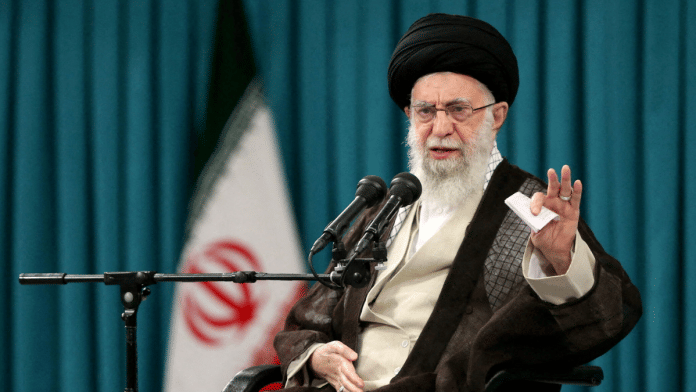New Delhi: Iran’s Supreme Leader Ayatollah Ali Khamenei has directed attention to Myanmar, Gaza and India, saying that Muslims cannot be oblivious to the suffering of people of their faith in these countries, drawing sharp criticism from the Ministry of External Affairs (MEA), Government of India.
Taking to social media on Monday, Khamenei commented, “The enemies of Islam have always tried to make us indifferent with regard to our shared identity as an Islamic Ummah. We cannot consider ourselves to be Muslims if we are oblivious to the suffering that a Muslim is enduring in Myanmar, Gaza, India, or any other place.”
Hours later, the MEA, which is led by S. Jaishankar, criticised Khamenei’s reference to the suffering of Muslims in India, calling it “unacceptable”.
“We strongly deplore the comments made regarding minorities in India by the Supreme Leader of Iran. These are misinformed and unacceptable,” read an MEA statement. “Countries commenting on minorities are advised to look at their own record before making any observations about others.”
Lately, India and Iran have maintained a cordial relationship, signing a long-term contract for the strategically located Chabahar port in May this year amid Israel’s war in Gaza.
However, Khamenei has criticised the Narendra Modi-led government in the past as well over the communal violence that broke out in New Delhi in March 2020. The violence, which followed the passing of the Citizenship (Amendment) Act (2019), triggered the ire of some other Muslim-majority countries as well. Indonesia, Malaysia and Turkey, at the time, condemned the CAA and the Delhi riots.
The CAA offers Indian citizenship to persecuted religious minorities, such as Hindus, Sikhs, Buddhists, Jains, Parsis or Christians from Afghanistan, Bangladesh and Pakistan. Muslims do not come under the ambit of the law.
At the time, the Organisation of Islamic Cooperation (OIC) reacted to the law passed in India, saying it was closely following “recent developments affecting [the] Muslim minority in India”. However, Muslim-majority countries such as Saudi Arabia and the United Arab Emirates avoided direct condemnation of the new law.
In March 2020, days after 50 died in the Delhi riots, Khamenei said the Modi government must confront “extremist Hindus and their parties”.
Before that, India had summoned the then-Iranian envoy to India, Ali Chegeni, over a comment by Iran’s Foreign Minister Javad Zarif. Zarif had called on Indian authorities to “not let senseless thuggery” prevail while criticising the “wave of organised violence” that erupted in New Delhi over the CAA.
(Edited by Madhurita Goswami)
Also Read: US targets cheap products coming in from China. What’s the ‘de minimis’ loophole it’s trying to plug






